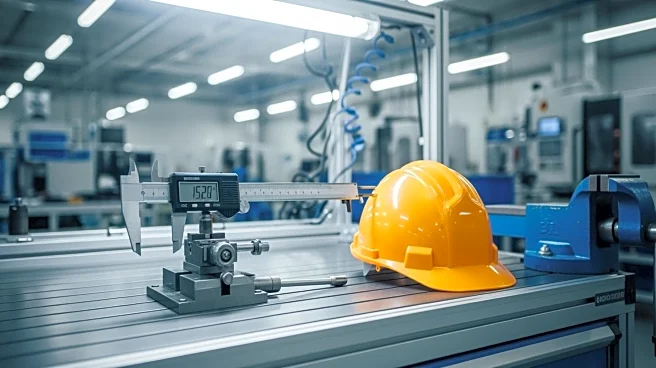What's Happening?
Tim Rumpsa, a safety supervisor at Sunnen Products Co. in St. Louis, Missouri, shares insights into his 37-year career in the honing manufacturing industry. Rumpsa, who has a background in precision machining
technology and business administration, emphasizes the evolving nature of manufacturing jobs. He notes that modern manufacturing requires computer skills to program machines, making the field more accessible and appealing to younger generations. Rumpsa's role focuses on ensuring workplace safety, and he takes pride in the company's open house events that allow employees to showcase their work to family and friends. He encourages young people to consider manufacturing as a viable career path, highlighting the industry's need for skilled workers due to an aging workforce.
Why It's Important?
The manufacturing sector is crucial to the U.S. economy, providing essential goods and employment opportunities. As the industry modernizes, there is a growing demand for skilled workers who can operate advanced machinery and technology. Rumpsa's insights underscore the importance of attracting new talent to fill the gap left by retiring workers. By promoting manufacturing as a clean, technologically advanced field, companies can appeal to younger generations and ensure a steady workforce. This shift is vital for maintaining the competitiveness of U.S. manufacturing on a global scale.
What's Next?
To attract more young people to manufacturing, companies may increase outreach efforts, such as offering co-op programs and partnerships with educational institutions. These initiatives can provide students with hands-on experience and a clearer understanding of career opportunities in the industry. As the demand for skilled machinists grows, salaries are expected to rise, further incentivizing entry into the field.











